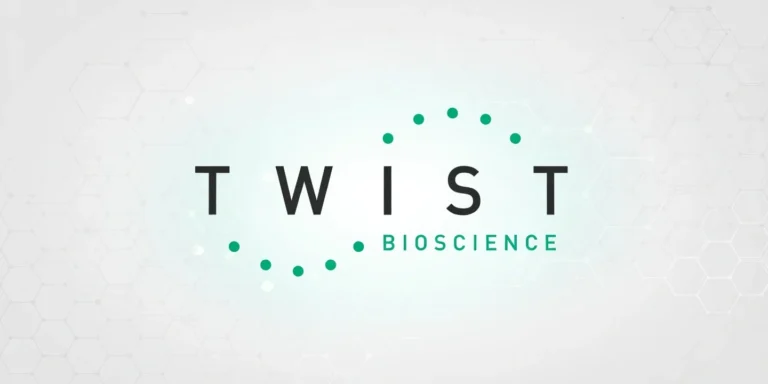
The U.S. Food and Drug Administration (FDA) has given priority review status to the supplemental Biologics License Application (sBLA) for Dupixent® (dupilumab), marking its sixth potential indication. This review targets its use as an add-on maintenance treatment for specific adult patients dealing with uncontrolled chronic obstructive pulmonary disease (COPD). The FDA is expected to make a decision on this application by June 27, 2024. Similar regulatory submissions are also currently under review in China and the European Union.
The sBLA submission, along with other submissions worldwide, draws support from data stemming from the Phase 3 COPD clinical research program. This program assessed the efficacy and safety of Dupixent in adults who were current or former smokers grappling with uncontrolled COPD characterized by evidence of type 2 inflammation (with screening blood eosinophils >300 cells/microliter). All patients were already on background maximal standard-of-care inhaled therapy, with the majority on triple therapy. The primary endpoint was successfully met in both trials (BOREAS, NOTUS), demonstrating that Dupixent significantly reduced moderate or severe acute COPD exacerbations by 30% and 34% respectively, compared to placebo. Additionally, Dupixent brought about rapid and significant improvements in lung function versus placebo, with these improvements sustained at the 52-week mark.
Safety findings from both trials generally aligned with Dupixent’s known safety profile in its approved indications. Adverse events more frequently observed with Dupixent (≥5%) compared to placebo in either trial included back pain, COVID-19, diarrhea, headache, and nasopharyngitis.
Priority Review designation is granted to regulatory applications seeking approval for therapies holding the potential to offer significant enhancements in the treatment, diagnosis, or prevention of severe conditions. The potential use of Dupixent in COPD is presently under clinical development, and its safety and efficacy for this indication have yet to be fully evaluated by any regulatory authority.
COPD is a respiratory ailment causing progressive lung function decline, characterized by symptoms such as persistent cough, breathlessness, and excessive mucus production. It not only hampers routine daily activities but can also lead to anxiety, depression, and sleep disturbances. COPD is also associated with a substantial health and economic burden due to recurrent acute exacerbations necessitating systemic corticosteroid treatment and/or hospitalization. While smoking and exposure to noxious particles are primary risk factors for COPD, even individuals who quit smoking can still develop or continue having the disease. With no new treatment approaches approved for over a decade, approximately 300,000 people in the U.S. live with uncontrolled COPD showing evidence of type 2 inflammation.
Sanofi and Regeneron’s COPD Clinical Research Program aims to revolutionize the treatment paradigm of COPD by examining the role various inflammation types play in disease progression, through the investigation of two potentially first-in-class biologics, Dupixent and itepekimab.
Dupixent acts by inhibiting the signaling of the interleukin-4 (IL-4) and interleukin-13 (IL-13) pathways, targeting a specific population of individuals exhibiting evidence of type 2 inflammation. Itepekimab, on the other hand, is a fully human monoclonal antibody that binds to and inhibits interleukin-33 (IL-33), a trigger and enhancer of broad inflammation in COPD.
Itepekimab is presently undergoing clinical investigation, with two Phase 3 trials actively enrolling participants, and its safety and efficacy have yet to be evaluated by any regulatory authority.
Dupixent is a fully human monoclonal antibody that inhibits the signaling of the interleukin-4 (IL-4) and interleukin-13 (IL-13) pathways without suppressing the immune system. The Dupixent development program has demonstrated significant clinical benefits and a reduction in type 2 inflammation in Phase 3 trials, establishing IL-4 and IL-13 as pivotal drivers of the type 2 inflammation playing a crucial role in multiple related and often comorbid diseases. These diseases encompass approved indications for Dupixent, such as atopic dermatitis, asthma, chronic rhinosinusitis with nasal polyposis (CRSwNP), eosinophilic esophagitis (EoE), prurigo nodularis, and chronic spontaneous urticaria (CSU).
Dupixent has garnered regulatory approvals in one or more countries globally for use in specific patients with the aforementioned conditions across different age groups. It is currently approved for one or more of these indications in over 60 countries, including Europe, the U.S., and Japan. Over 800,000 patients worldwide are being treated with Dupixent.
Dupilumab, developed jointly by Sanofi and Regeneron under a global collaboration agreement, has been studied across more than 60 clinical trials involving over 10,000 patients with various chronic diseases partly driven by type 2 inflammation.
In addition to the current approved indications, Sanofi and Regeneron are investigating dupilumab’s potential in a broad range of diseases driven by type 2 inflammation or other allergic processes in Phase 3 trials. These include chronic spontaneous urticaria, chronic pruritus of unknown origin, chronic obstructive pulmonary disease with evidence of type 2 inflammation, and bullous pemphigoid. However, the safety and efficacy of dupilumab in these conditions are still under clinical investigation and have not been fully evaluated by any regulatory authority.
Regeneron, a leading biotechnology company, focuses on inventing, developing, and commercializing life-transforming medicines for individuals with serious diseases. The company’s unique ability to consistently translate science into medicine has led to numerous FDA-approved treatments and product candidates across various disease areas. Regeneron is dedicated to accelerating and enhancing the traditional drug development process through proprietary technologies like VelociSuite®, including VelocImmune®, and through ambitious research initiatives such as the Regeneron Genetics Center, which conducts one of the largest genetics sequencing efforts globally.





